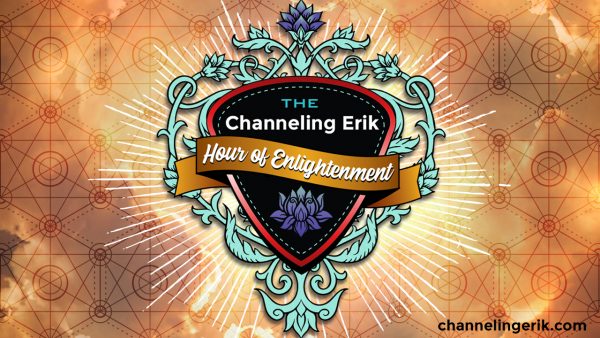Wow, I sure did get a lot of positive feedback about the Chaga mushroom tea. A lot of you want to know the products I bought. Here they are:
Salem Botanical Chaga Tea (cup a day)
Mushroom Science Chaga capsules (two a day)
Maine Chaga Face and Body Cream by My Berry Organics (morning and night)
I just ordered the extract version of the above and will apply that before I apply the cream. It received rave reviews from customers. I hear it’s great for skin cancers and other dermatological conditions. No substitute for your healthcare provider’s advice, though!
Enjoy the final part on Erik’s series about grief.
Me: I had that same problem where I had to go through that day when I, you know, found out you shot yourself; I had to run upstairs to see you. I had this compulsion to talk about it and go through the details. You don’t want to go through those details with anybody! That’s tough. That’s a tough one to lay on somebody—going through all of the emotions, the pain, the sights, the sounds, the smells.
After all, they’re very graphic and disturbing.
Erik: If you feel your friends are not in that place where you can do that, then you need to find a therapist or you need to find a grievers’ group where you can get it outside of you. You can’t keep these things inside. They get bigger and heavier, and they do change the energetic quality in your body. That’s why it makes it difficult for us to communicate while we’re grieving or while we’re below par.
Me: That was my next question. So many people get signs or feel the presence of the spirit [of the deceased loved one] but for some reason, those in deep grief don’t, and those are the people who need it the most.
Jamie (laughing): He goes, (in a suspicious, inquiring tone) “Or are they?”
Jamie: He goes like this. (She puts the tip of her index finger to the corner of her mouth, Dr. Evil style.)
Erik: Those who are in deep grief and are not coming out of it, they’re using a sabotage technique in a way. They’re proving to themselves that we’re really dead and that there are no options. By doing that, they stay in hard grief. They stay in hard denial that there can be an opportunity for new relationship with their loved one.
Me: Is there any, I don’t know, energetic reason why we don’t get, uh, for example, I didn’t get any signs from you, Erik, for a long time until my grief lifted a little bit. Is the energy too dense, or… Walk me though that.
Erik: When you are in hard grief, we can leave a thousand messages for you and you’ll never be able to pick up a single one of them. That’s just what it is. They don’t translate easily through that [dense] vibrational pattern. Sometimes we can get into your subconscious because when you’re asleep, your grief lightens and we can come into a dream. If you’re asleep and your grief is lighter, then obviously that’s something you can do in your conscious life.
Me: And realizing that, you know, we always say that we’ve “lost” somebody, but they’re really not “lost.” They just don’t have a body. They’re the same, right?
Erik: Yes. You didn’t lose anybody. Death is a transition, and—
Jamie: Oh, he’s going through a bunch of other words.
Erik: Losing someone needs to be taken out [of our vocabulary.] Nobody’s lost. I didn’t lose myself. In fact, I found myself even more. We don’t “deal” with grief. Grief isn’t some negative thing.
I beg to differ. But then Erik always insists that there is no positive and negative. Everything is just a beautiful lesson.
Erik: It’s a process that helps you shift gears into a new understanding and a new relationship. Some people take 30 minutes to go through it; some people take 30 years. Whatever works for you. Timing isn’t the issue. “Trying.” “Trying to understand.” I call bullshit on that one, too. “Trying” means your hitting the same way, the same topic again and again and again and again and again, and it’s not working. You could be doing something different. “doing” something different not “trying” something different. And if you feel like you’re listening to all of this and you’re trying these techniques and you’re getting mad at people because they’re giving you advice and all you can think is, “I’ve done that before and it didn’t work.” “I did that before and it didn’t work.” You’re mad at the world because it’s giving you opportunity but you’re saying, “There is no hope.” The responsibility is on you. It’s totally on you, and you gotta have a come to Jesus moment when you say—in an extremely honest moment—that you’re sabotaging yourself and keeping yourself in a grief process because you “lost” somebody. You did. Then you’ll start to recognize that it wasn’t your fault that they died. It was cancer. It was an accident. It was a suicide. It was something. You didn’t pull the trigger; you didn’t run them over with the car; you didn’t give them the cancer. You have to relinquish that you were responsible and that you were only a witness. You have to recognize that you loved that person so much, but you had no power to help them to live. That’s very difficult to get over sometimes. Then you have to recognize that they didn’t leave you 100%. There are still opportunities to stay engaged with them. You have to figure out what that looks like for you within your belief system, within your religious structure or spiritual structure. A lot of times, people can’t do that for themselves. They have to rely on a community. Then you have to reach out and look at it. But if you are stuck, stuck, stuck, stuck even though you’re doing everything that everybody says, you’ve got to point the finger at yourself and ask, “Why is this serving me so well?” “Why am I staying in this place?” “Why is this good for me?”
Me: Why do some people do that, though? In what way could it serve some people?
Erik: Well, if you stay in grief, traditionally our culture pities you. “I’m so sorry for you. Can I bring you a meal? Can I do this for you?” People show help and pity, and sometimes, to a griever, it feels very good. What if they’re healthy after this? All that might go away. Maybe they’re 80 years old and have lost their husband, and if they stop bringing by the meals and everything, then what do they have left? They’re at home, alone.
Me: TV dinners.
Erik: Yes, and that’s when you gotta say, “Wait a second. That’s not really the truth. I could invite them over for dinner. I could say, “I don’t like eating alone.” I could choose to go to a restaurant. I could choose to join a group of people who do dinners out.” There are so many opportunities, but we paint ourselves into a corner, and sometimes that’s where we feel we need to stay to get what we want. Get over it!
Jamie winces at his bluntness.
Me: Okay. Along the same lines, I know what it feels like to lose somebody to suicide, and I wouldn’t wish that on anybody. So I was wondering, how do you help somebody who’s suicidal?
(Long pause)
Jamie covers the lower part of her face with her hand, then pulls at an imaginary beard like a stuffy professor.
Jamie: He has his hand up on his face.
Erik: Good question, Mom. Good question.
Me: I try.
Yes, I do have my moments.
Erik: There are two types of suicidal people. There are the ones who shout out that they want to kill themselves. “Oh, I just wanna die. I wanna die. I don’t want to stay here.” Normally, the one who talks about it freely really isn’t interested in the actual act of suicide, but they do want whatever they’re into to be completely over. Gone. They’re really asking for help. Let’s say you put them on suicide watch. Yeah, I get that. That’s a protocol, but they really need help changing what’s in their life more than being watched so they don’t kill themselves. We need to help them reconnect to life again and [to figure out] what they want out of it, because if they keep talking about it, and they want to go but they’re not going to do the action, then there’s still something good in it for them. So let’s help them live and open up again. Then there are those who don’t ever talk about it. They don’t even mention that they’re sad. They don’t even mention that they want to go, and they leave. These are the quiet suicides where people had no idea that this was coming or that they were suffering or hurting. Because you don’t know, how can you help? You should treat everybody just the same. We’re all in the boat together, and asking people how they feel instead of what they think, that’s a life jacket right there in the middle of the ocean. We don’t give a lot of places to open up and talk about how we’re feeling. “How are you?” That’s really an emotional question, but in our culture, we’re trained to respond with—what is it, Mom?
I fumble on this one.
Erik: How are you?
Me: Yeah, what are you talking about?
Erik: “I’m fine.”
Me: Oh yeah. I see. Knee jerk reaction.
Erik: Yes. The knee jerk reaction. It’s not working for us. There is a lot of energy changing in the world today. The Earth’s energy is changing, and, with that, many people can’t connect to the new vibration. They can’t connect to this “Shift” if you want to call it that. So they’re just going to be checking out because [they feel like] they no longer fit. We just have to accept that this is okay. If we didn’t know they needed help and then they committed suicide, the first thing you should go to is not, “They didn’t trust me enough, or, “They didn’t rely on me enough as a mother, father, sister, best friend, family member, aunt, counselor, whoever,” but that they knew the best answer for them was this. It takes a lot of strength and a lot of guts to follow through.
I can’t imagine what it took for Erik to pull that trigger.
Erik: It’s not a weak man’s path. So we need to accept that since they’ve done this without our knowledge, it’s what they wanted. It’s not about us.
(Pause)
Jamie: He’s up again walking and talking.
Me: Okay. Is there anything you can tell parents who have, or anybody who’s lost a loved one—“lost!”—whose loved one has transitioned due to suicide? That’s so taboo. That’s a different kind of grief.
Erik: Why, because it was their choice and not an accident?
Me: Yeah.
Erik: Or it was parent and child? I don’t know. You tell me.
Me: I’m just saying that the grief from having someone transition due to suicide is different. Suicide is such a taboo thing.
Erik: It’s extremely taboo because we look at it as, “That person really didn’t care for what they had in their life, and they just checked out. You obviously weren’t good enough for them. You didn’t teach them well enough, or they were ungrateful. They were broken.” That’s such bullshit.
(Pause)
Jamie (smiling): Say that again, Erik.
Erik: The end goal in life isn’t living to a ripe old age.
(Pause)
Jamie: Please say the other part again.
Erik: The end goal isn’t living to a ripe old age. The end goal is achieving everything that you desired to do. Some of us know what our natural out is, and suicide should be seen as a natural out. Words to whoever has handled the suicide whether it’s a parent, grandparent, another family member or even the best friend, the wife: Take great solace in knowing that in the quality of love for them, the kind of attention and love that you gave to them, they didn’t take that an translate it into the power to leave this world. That’s not the motivator. It’s not about you. Take great—
Jamie: Say that word again? (To me) It’s weird. When he gets deep, he’s not as loud as he normally is. His voice gets lower almost like a little bit of a mumble in a way.
Erik: Just take great solace in knowing that you got to be a part of their life and that they, the person that left, were able to know when their days were over. I don’t know what else to say because like everything else we talk about, Mom, [every case] is uniquely different.
Me: Yeah.
Erik: We can talk about suicide, but there are so many different reasons for why we come to the decision of suicide. Every single one of them is…
Jamie: He fades off.
Me: I think you’ve covered it very well. We can close there. Thank you, Erik. Thank you, Jamie. Very enlightening.
And sobering.




